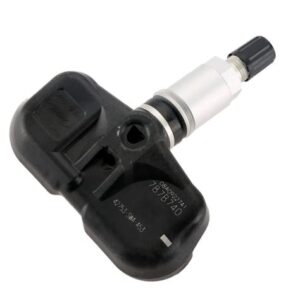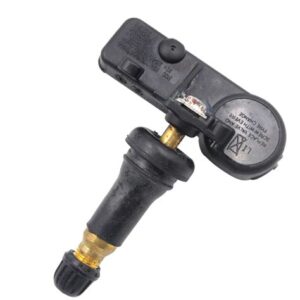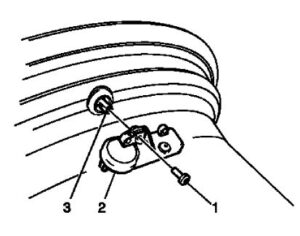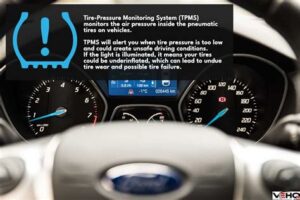Explore tire pressure sensor insights, common faults, performance impacts, troubleshooting tips, and preventive maintenance strategies for optimal vehicle safety and efficiency.**Introduction**
If you own a Lincoln MKX, you may encounter an issue with the tire pressure sensor that can impact both your vehicle’s performance and your safety on the road. Understanding the intricacies of the tire pressure sensor is essential for every driver, as it plays a crucial role in maintaining optimal tire pressure levels. In this blog post, we will explore the common causes of sensor faults, the effects of a malfunctioning sensor on your vehicle’s performance, and how to effectively troubleshoot and diagnose any issues. Moreover, we’ll provide you with essential preventive maintenance tips to keep your tire pressure sensor in top shape. Stay with us to ensure your Lincoln MKX remains safe and efficient on every journey.
Understanding the Tire Pressure Sensor
The Tire Pressure Sensor (TPS) plays a crucial role in ensuring the safety and performance of your vehicle, particularly in luxury models like the Lincoln MKX. These sensors are responsible for monitoring the air pressure in your tires and alerting the driver if the pressure falls below a certain threshold.
The Lincoln MKX is equipped with an advanced Tire Pressure Monitoring System (TPMS) that utilizes these sensors to maintain optimal tire pressure, promoting not only vehicle efficiency but also safety on the road.
How the Tire Pressure Sensor Works
The Tire Pressure Sensor utilizes a combination of hardware and software to provide real-time data regarding tire pressure. Here’s a brief overview of how it works:
- The sensor, usually located within the tire, measures the air pressure using a strain gauge.
- It sends this data wirelessly to the vehicle’s onboard computer.
- The computer processes the information and determines whether the pressure is within acceptable limits.
- If the pressure is too low, a warning light activates on the dashboard to notify the driver.
Importance of Monitoring Tire Pressure
Proper tire pressure is critical for several reasons:
- Safety: Under-inflated tires can lead to reduced traction, longer stopping distances, and increased risk of tire blowouts.
- Fuel Efficiency: Maintaining optimal tire pressure can enhance fuel efficiency by reducing rolling resistance.
- Tire Longevity: Correct pressure prolongs tire life by minimizing uneven wear and tear.
In summary, understanding the Tire Pressure Sensor is essential for any Lincoln MKX owner. Regularly monitoring and maintaining tire pressure can significantly impact your driving experience, ensuring your vehicle operates safely and efficiently on the road.
Common Causes of Sensor Faults
The Lincoln MKX is equipped with Tire Pressure Monitoring System (TPMS) sensors that help maintain optimal tire pressure for safety and efficiency. However, like any technology, these sensors can experience faults. Understanding the common causes of these faults is essential for maintaining your vehicle’s performance. Below are some typical reasons behind sensor malfunctions:
| Cause | Description |
|---|---|
| Battery Failure | The internal battery of the TPMS sensor may die after several years, which can lead to sensor inactivity. |
| Damage from Road Hazards | Debris, potholes, and other road hazards can physically damage the sensors, leading to faults. |
| Improper Installation | If the sensors were not properly installed, they might not function correctly. |
| Environmental Factors | Extreme temperatures can affect sensor performance, causing false readings or faults. |
| Faulty Wiring or Connectors | Issues with the wiring connections can lead to sensor failure or erratic readings. |
If you’re experiencing issues with your Lincoln MKX’s TPMS, it’s crucial to diagnose these common faults to ensure safety and performance. Regular checks and maintenance can help prevent sensor issues from escalating.
Impact of Faulty Sensor on Performance
When it comes to the Lincoln MKX, having a properly functioning tire pressure sensor is crucial for optimal vehicle performance. A faulty sensor can lead to a variety of issues that not only affect the car’s handling but also pose safety risks. Here are some key impacts of a faulty tire pressure sensor:
- Reduced Fuel Efficiency: A faulty tire pressure sensor can cause tires to be improperly inflated, which increases rolling resistance and leads to higher fuel consumption. Drivers may find themselves making more frequent trips to the gas station as a result.
- Poor Handling: Incorrect tire pressure can compromise the handling of the Lincoln MKX. Under-inflated or over-inflated tires can affect steering response, making it harder to control the vehicle, especially in emergency situations.
- Tire Wear: When tire pressure is consistently incorrect due to a faulty sensor, it can lead to uneven tire wear. This not only shortens the lifespan of the tires but also increases the likelihood of a blowout on the road.
- Safety Risks: Perhaps the most significant impact of a faulty tire pressure sensor is the enhanced risk of accidents. Low tire pressure reduces grip on the road, increasing stopping distance and making the vehicle more susceptible to skidding.
In summary, the importance of a functioning tire pressure sensor in the Lincoln MKX cannot be overstated. Ignoring sensor faults can lead to severe repercussions for both performance and safety. Regular monitoring and maintenance are essential to ensure that your sensor is working correctly, providing you with the peace of mind that your vehicle is safe and efficient.
Troubleshooting and Diagnosis
Troubleshooting a Lincoln MKX tire pressure sensor fault involves a series of systematic steps to determine the root cause of the issue. Here’s a breakdown of the process you can follow:
- Check the Tire Pressure: Start by verifying that all four tires are inflated to the manufacturer’s recommended pressure levels. You can typically find this information on a sticker located inside the driver’s door jamb.
- Inspect the Sensor: Visually inspect the tire pressure sensors in each wheel. Look for any signs of physical damage or corrosion. Damaged sensors are often the culprit of faulty readings.
- Look for Warning Lights: Pay attention to the dashboard for any warning lights related to tire pressure. A flashing light could indicate a malfunctioning sensor.
- Use a Diagnostic Tool: Connect an OBD-II diagnostic tool to your Lincoln MKX’s onboard computer. This tool can retrieve error codes that may indicate which tire pressure sensor is failing.
- Reset the System: Sometimes, the sensor may require a reset. This can be done by following the manufacturer’s instructions, which often involves turning the vehicle on and off or operating the TPMS reset button.
- Check for Software Updates: Make sure your vehicle’s software is up to date. Manufacturers sometimes release updates to improve functionality and address known issues, including sensor faults.
By following these troubleshooting steps, you can narrow down the issue affecting your Lincoln MKX tire pressure sensor and take appropriate action to fix the problem.
“Proper maintenance and regular checks can help prevent tire pressure sensor faults and ensure optimal vehicle performance.”
Preventive Maintenance Tips for Sensor
Maintaining the Tire Pressure Sensor in your Lincoln MKX is crucial for ensuring accurate readings and optimal vehicle performance. Here are some preventive maintenance tips to keep your sensor in top shape:
- Regularly Check Tire Pressure: Make it a habit to check your tire pressure at least once a month. Maintaining the correct pressure helps prolong the life of the tire pressure sensor.
- Visual Inspections: Regularly inspect the sensor for any visible signs of wear and tear. Look for cracks, corrosion, or loose connections.
- Battery Maintenance: The sensors are often powered by a small battery. Check the battery life and replace it as needed to prevent functionality issues.
- Avoid Road Hazards: Avoid driving over potholes or curbs. Such impacts can cause damage to the tire pressure sensors.
- Use OEM Parts: When replacing any part of the tire pressure monitoring system, always opt for Original Equipment Manufacturer (OEM) parts to ensure compatibility and reliability.
Implementing these preventive measures will not only enhance the lifespan of your Lincoln MKX tire pressure sensor but also contribute significantly to the overall safety and performance of your vehicle.
Preventive maintenance saves time and money in the long run. Keep your sensors functioning optimally!
Frequently Asked Questions
What is a tire pressure sensor fault in a Lincoln MKX?
A tire pressure sensor fault indicates that the tire pressure monitoring system (TPMS) has detected a malfunction, which could be due to a faulty sensor, issues with tire pressure, or a problem with the system itself.
How can I tell if my Lincoln MKX has a tire pressure sensor fault?
You will usually see a warning light on the dashboard indicating low tire pressure or a specific TPMS fault message. Additionally, you may notice irregular tire pressure readings.
What are the common causes of tire pressure sensor faults in Lincoln MKX?
Common causes include dead or weak battery in the sensor, damaged or corroded sensors, improperly inflated tires, or issues with the TPMS control module.
Can I drive my Lincoln MKX with a tire pressure sensor fault?
It is not advisable to drive with a tire pressure sensor fault, as it may prevent you from accurately monitoring tire pressure, leading to potential safety issues.
How do I reset the tire pressure sensor in a Lincoln MKX?
To reset the tire pressure sensor, inflate the tires to the recommended pressure, turn on the vehicle, and then press and hold the TPMS reset button located under the steering wheel or in the glove compartment until the TPMS warning light blinks three times.
What should I do if the tire pressure sensor fault persists after a reset?
If the fault persists after a reset, it may be necessary to have the TPMS diagnosed by a professional to check for faulty sensors or issues with the system.
How can I prevent tire pressure sensor faults in my Lincoln MKX?
To prevent tire pressure sensor faults, regularly check and maintain proper tire pressure, avoid hitting potholes or road debris that could damage sensors, and ensure the vehicle’s battery is in good condition.





